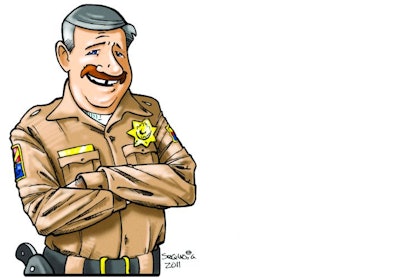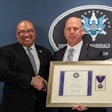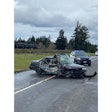 Illustration: Sequoia Blankenship
Illustration: Sequoia Blankenship
The other day my alma mater won a game against a ranked opponent that had dominated them for years. Suffering from time zone changes and teaching exhaustion after traveling, I fell asleep when my team was down by 14. I awoke much later that night and checked the score on my phone to find my team had not only come back, but had turned it into a blowout. "Wow," I said, "I knew it!" and went back to sleep with my certainty firmly established.
But did I know it? Nope. Only after the fact did it seem so obvious my team would overcome, break the streak, and shock the "experts." In fact, it seems experts are always being shocked, and obvious things are happening that somehow we just didn’t see coming. How many times have you thought to yourself, Anyone with common sense would have seen that coming? Yet a recent study on "experts" found their ability to predict outcomes was only slightly better than random guessing, and their best outcomes were when they predicted outside of their expertise.
These predictions were about political outcomes and not nearly as ambiguous as your next call. Law enforcement is about anticipating, observing, reacting, controlling, and recording. You not only have to make split-second decisions with partial information, but record "after the fact" recollections in documents that will later reappear in criminal and civil cases. So you will go into a situation loaded with stress and uncertainty and later be judged by supervisors, managers, prosecutors, defense counsel, judges, and jurors on not only how you handled the situation, but how you remembered it as well. Therein, Dr. Watson, lies the rub!
While in fiction Sherlock Holmes' magnificent intuitive leaps lead to remarkable arrests, we would make a huge number of mental errors if we tried the same tricks. Worse, we might make assumptions that would get us or someone else hurt. I am not saying you shouldn’t trust your instincts—absolutely follow your gut—but understand you have to be ready to reevaluate and react in a fraction of a second. It's what happens to your memory of the events once they've concluded that can cause problems and make evaluating events in hindsight very tough.
In retrospect, everything is clear and obvious. In fact, I was just reading "Everything is Obvious: Once You Know the Answer" by Duncan Watts and, as his title says, what we often see as a common sense outcome was quite possibly the result of a completely unpredictable event being reviewed with "hindsight bias." Hindsight bias is also known as the "we knew it all along" effect. I find very often we judge officer actions with just such a bias.
Take a shooting, for instance. No one is ever going to get a call to "go to 110 W. Elm and shoot the occupant." But after a shooting at 110 W. Elm, many of the officers may remember it as having been pretty "obvious" that things were sideways and shooting was coming. This is true "hindsight bias" in which you forget anything that isn't relevant to the ending of the story, and it often makes writing the story a lot tougher. Hindsight bias makes it "seem" that what happened was a foregone conclusion. Yet in this example, the officers had faced similar situations, often hundreds of times, with different results.
Each of us suffers from hindsight bias almost daily. Most of the time it is as mundane as thinking, I knew they would win, or watching an old thriller you've enjoyed many times before and not even realizing the movie has become a completely different experience because you know the ending and the plot twists.
The antidote for hindsight bias is trying to remember your prior "naïve mindset" going forward in time instead of looking backward. Sports experts get reminded of their limitations to predict simply by reflecting on their "picks" the week before, and yet they still act as if they knew when each play occurred what the outcome would be.
Your life depends on taking defensive and conservative predictions into situations and adapting as they develop. Understanding the tricks your mind will play on you allows you to really learn from your experiences as well as write more effective, definitive reports. Think back to the call, maybe listen to the dispatch recording, and reflect on just how uncertain the situation was before the incident went down.
Finally, when you review an after-action report or use-of-force incident, remember what the reporting officer may have forgotten due to hindsight bias and think to yourself, We never know what will happen at 110 W. Elm.
Dave Smith is the creator of "Buck Savage" and owner of Winning Mind Seminars.














